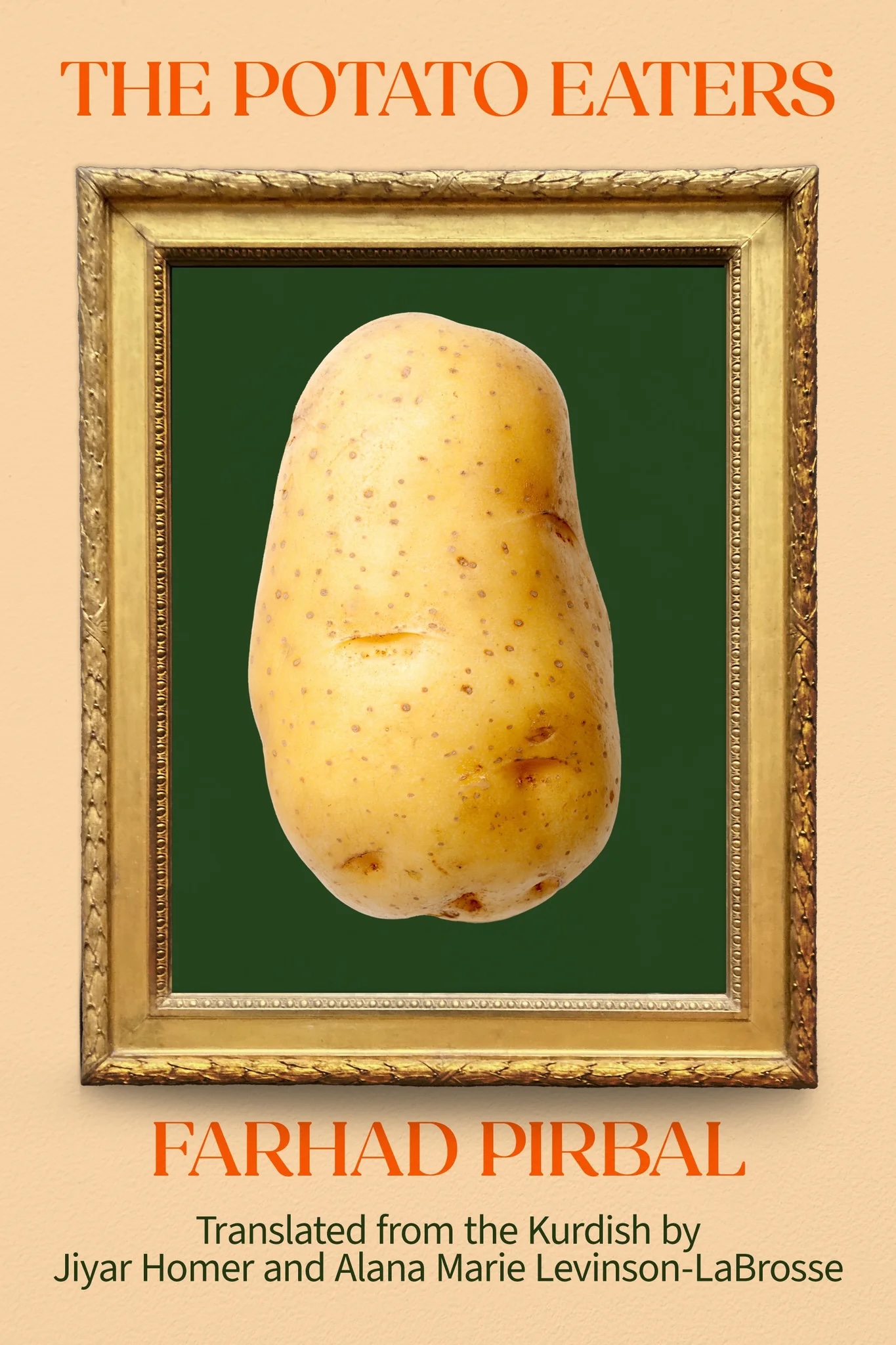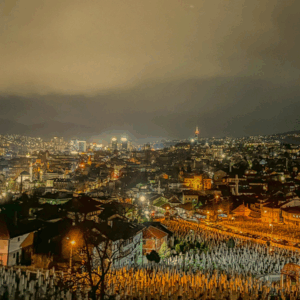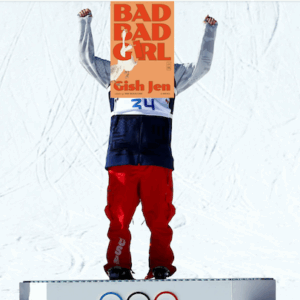“If you leave, every return is as if
You’ve left home to arrive in Jabulqa.”
–Haji Qadir Koye
*Article continues after advertisement
Fereydun put his head down and left his village. Then the rumors flew: Everyone said something different. Some people said, “He’s gone to Germany,” some said, “He’s arrived in Sweden,” some others said, “He’s in Canada,” and still others said he was camped out in Colombia, smuggling hashish. His close friends said, “In Denmark, he’s gotten himself a wife, a Polish woman, and works in restaurants.” His brothers and sisters, strangest of all, said, “We get his letters from America. He says he’s there.”
When Fereydun left, a severe plague spread through his village. People would begin to vomit involuntarily, then fall into bed for three or four days and die in complete agony. Fereydun had left, and stayed away, and for thirteen years the plague raged on.
Now, the plague spent, after thirteen years of absence, of carrying his home on his shoulders, he has returned to his village.
Fereydun returned home as if just coming back from the teahouse, like any other evening, except he held a bag, an immense, full bag.
Fereydun hadn’t heard: The villagers, throughout thirteen years of plague, had let many customs and traditions slip through their fingers only to take hold of new standards and ethics, the strangest of which was their potato-eating habit. As hunger became famine, long after Fereydun had left, eating potatoes became a habit.
People, little by little, as the plague spread, lost their taste for anything else; year by year, more and more, any other food came to disgust them: They ate only potatoes. Every crop and harvest: only potatoes. In the plains, in kitchen gardens, beside every gate, even in teahouses and schools, they planted only potatoes. They drank potato water. The more fortunate drank potato juice. Aghas, efendis, and noblemen drank potato beer and potato wine and potato arak. The poor, they preserved potato water in winter to drink in summer. People dressed in tailored potato peels. They hung pictures of potatoes of all shapes and sizes on the walls of their homes and teahouses. And their Ramadan offerings and general tithes were potatoes. The most coveted gift for a housewarming or solstice or any given week or occasion was only the potato. When someone died, they washed the body with potato water and, in the end, laid a single potato to rest in the grave.
Fereydun’s brothers and sisters, his father, and all their relatives were so happy at Fereydun’s return that despite their poverty, they threw a party that very day, a party for family, old friends, and even acquaintances that lasted three nights and three days. They danced and celebrated to drums, the zurna, and various bands.
Throughout these three nights and three days, reporters from all the big-city radio and television stations, newspapers and magazines, one after the other, came to interview Fereydun. Such-and-so party radio station blared, “A titan of a poet has returned to our homeland.” Such-and-so party television channel declared, “A Kurdish student graduated from a famous university in the United States and returned to his village.” Newspapers and magazines splashed it across their headlines, “A talented writer returned to his birthplace to serve his own nation.”
So, for three nights and three days, between all the respect and propaganda, Fereydun became “the greatest poet, the humblest master, the most famous writer” in his country.
So, for three nights and three days, Fereydun had his hands full. Fereydun’s family and relatives constantly invited him to their homes. Poor households borrowed potatoes from their wealthy relatives so they could invite Fereydun over. And the village aghas, noblemen, and efendis invited him out for potato beers or other potato drinks at their private clubs. Close and distant acquaintances, when they visited him, each offered him a gift: a single painted potato in a paper sack.
Fereydun, at first himself, gradually, over the course of these three days, became somewhat accustomed to potatoes; he ate and drank only potatoes as if this were normal.
On the fourth night, at eleven thirty p.m., his father and sisters and brothers, his brothers- and sisters-in-law and all their kids, his maternal and paternal uncles and all their kids, his aunt and her kids, sat all together in Fereydun’s father’s living room; their potato dinner eaten, they gathered around Fereydun.
*
His father turned to Fereydun and said, “Now, then, Fereydun, my son! What have you brought for us?”
This question delighted Fereydun. So happy that he felt giddy, Fereydun thought, “This will be such a surprise!” He stood, so proud, and placed the bag with its immense fullness in the dead center of the room, before his father, and let its contents spill out.
The bag, like a sack of wheat, split open and fine gold, like bright yellow flour, sifted down, then more fell, the pieces getting bigger and bigger until they were the size of bricks. Fereydun, thrilled, proud, and happy, watched that shimmering gold fall as if it were the sweat of his soul, exhausted from the thirteen years of his exile, and said, “Here, my beloved father! I brought you gold.”
His sister-in-law, breastfeeding her frail newborn, asked, “This bag, it’s all just gold?”
Fereydun replied, “Yes, it’s all gold.”
His sister, bewildered, in a slightly raised voice, asked again, “It’s all just gold?”
Fereydun said, “Yes. It’s all just gold.”
His maternal uncle, more confused than anyone else, asked, “It’s all just gold?”
Fereydun said, “Yes, all just gold.”
His father threw in, “So, you didn’t bring any potatoes from abroad?”
Fereydun said, “No. I didn’t bring any potatoes from abroad.”
His elder brother, shocked, raised his voice, “You didn’t bring any potatoes from abroad?!”
Fereydun was more surprised and bewildered than them. “No, I didn’t bring any potatoes from abroad.”
His brother-in-law said, “Really? You didn’t bring any potatoes from abroad?”
“No,” he replied, “I didn’t bring any potatoes from abroad.”
His maternal uncle, confused and a little angry, said, “Really? Really? You didn’t bring any potatoes from abroad?”
“No, I didn’t bring any potatoes from abroad.”
His paternal uncle, as if he wanted to grab him by the collar and shake him, said, “You’re serious? You brought not one potato from abroad?”
Fereydun, still somewhat confused, but calm, said, “Yes, I’m serious, I didn’t bring any potatoes from abroad.”
His cousin from his father’s sister, said, “So, seriously, you didn’t bring any potatoes from abroad?”
Fereydun began to hyperventilate. “Yes, seriously, I didn’t bring any potatoes from abroad.”
His aunt said, “I mean, how is it possible you brought not one potato from abroad?”
Fereydun was getting angry. “I didn’t bring any potatoes from abroad.”
His cousin from his father’s brother, said, “Well, but how? Why didn’t you bring any potatoes from abroad?”
Fereydun felt like he was defending a mistake he’d made or some crime he’d committed. “I don’t know. I didn’t bring any potatoes from abroad.”
His cousin, from his mother’s brother, said, “Well, that’s strange! Why didn’t you bring any potatoes from abroad?”
Fereydun, calmly: “Why is that strange? I didn’t bring any potatoes from abroad.”
Fereydun’s father, at last, with sorrow and grief, took a tragic, desperate breath: “Well, but why, my son? Why didn’t you bring any potatoes with you?”
Fereydun, mustering his pride at the thought of the great value of the gold, said, “I brought only gold with me.”
His maternal uncle, a dark-skinned, broad-shouldered man with a sweeping handlebar mustache, with curiosity, wondered aloud, “What is gold, my boy?”
Fereydun, given the heated back-and-forth, finally understood that no one in his family remembered what gold was. That no one else in the village now could or would understand the value of gold. Agh. Ugh. He refused to feel like a failure or an idiot, but when he considered trying to explain to them the value and worth of gold, it seemed a hardship, almost hopeless. So, with sorrow and that hopelessness, sinking into the absurdity of it all, he looked into his maternal uncle’s ignorant eyes and fell silent.
His sister-in-law, her frail newborn in her embrace, got to her feet, said “Pfff!”, and left. As she walked out, she threw a snarl of words. “Thirteen years he lived abroad, and what did he bring back, not one sack of potatoes!”
His aunt, the wife of his maternal uncle, tossed the cigarette from her fingers, got to her feet, said “Indeed . . . Pfff!”, and walked out as well, saying, “Thirteen years we haven’t seen him and he brings us not even one potato sack as a gift!”
His aunt, the wife of his paternal uncle, quietly got to her feet, took her child’s hand, and also left, mumbling desperately on her way out, “Bah . . . What the hell is this? You didn’t bring a single potato with you!”
His brother-in-law, sighing and complaining, left without a glance at Fereydun, mumbling, “If nothing else, you could have brought just a few potatoes as gifts for the kids!”
His aunt, the fattest of them all, arriving late, stood at the threshold only to mumble and grumble in the courtyard, “People coming back from abroad always bring sacks of potatoes with them, but he brings this useless shit . . . no one but him even knows what it is!”
All his cousins—mother’s brother’s kids, father’s brother’s kids, father’s sister’s kids—all his nieces and nephews, his uncles, paternal and maternal, continuously, one after the other, stood and left the room desperately; quietly, as they turned their backs on him, they’d say, “Thirteen years you lived abroad, and you didn’t even bring a few potatoes with you!”
“Thirteen years you lived abroad, and you didn’t even bring a few potatoes with you!”
“Thirteen years you lived abroad, and you didn’t even bring a few potatoes . . . ”
“Thirteen years you lived abroad, and you didn’t even bring . . . ”
“Thirteen years you lived abroad, and you didn’t . . . ”
“Thirteen years you lived abroad . . . ”
His elder sister, with an old scar on her temple, which people whispered came from the claw of the village’s mythical eagle, felt a lump in her throat, then fell to weeping, as if something inside her were breaking, and said, “Dear Fereydun! I wish you hadn’t disgraced and humiliated us so.” And she took her child’s hand and left.
His younger brother, with fury and a stare like a rock loosed from a slingshot, mocked him. “What is ‘gold’?” Then, with unleashed fury, and no little disquiet, he stormed out.
His elder brother, a gentler, more intellectual man, stood and went to Fereydun. He leaned down to his brother, eyes brimming with tears, a tangle of sorrowful words falling out of his mouth. “Dear Fereydun! If nothing else, you could have brought just a few potatoes for us. Didn’t you know how bad we have it? Didn’t you know? Didn’t you know we’re barely getting by?”
Fereydun crumpled like a corpse. His head hung between his knees. Silent, in shock, he tried to think. He looked as if he’d been abandoned in a desert and fallen into a fever dream, he was so unaware of his surroundings.
Still, after all, there was their father, downcast, defeated, stunned. He looked toward the collapsed sack of gold in the middle of the room as if it were the remains of a loved one; as a reproach, he asked, “Well, son, but what is gold? What’s it good for?”
*
Fereydun, raising his head, abruptly discovered himself in a desolate, deserted room. His head throbbed, the way a long party makes one go deaf. But he was happy that all of them had left, left him alone, the room finally empty. He got to his feet and took tearful steps toward the photograph of his late mother centered on the far wall: his mother, who, during the plague, the period of Fereydun’s absence, had passed away; his mother, whom he’d never see again; his mother, who hadn’t been here today, this evening; who wasn’t here, sadly, to pull Fereydun into her arms, to rest his deaf head on her tender chest and comfort him. His mother: the only person left in their country, in their village, who still understood the value of gold, who still remembered its worth, the only person who knew what gold was, resting now in a freezing grave.
Hawler
1995–9
__________________________________
From The Potato Eaters by Farhad Pirbal, translated from the Kurdish by Jiyar Homer & Alana Marie Levinson-LaBrosse. Used with permission of the publisher, Deep Vellum. Copyright © 2024 by Farhad Pirbal, Jiyar Homer & Alana Marie Levinson-LaBrosse.













